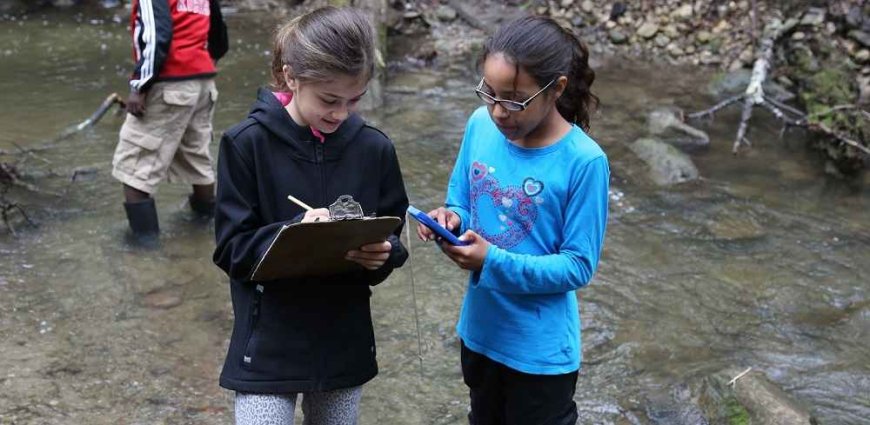The Importance of Environmental Education for Children
Environmental education for children lays the foundation for a sustainable future, equipping young minds with the awareness, knowledge,

In an era marked by environmental challenges, imparting knowledge and fostering a sense of responsibility toward the planet has never been more critical. Environmental education for children lays the foundation for a sustainable future, equipping young minds with the awareness, knowledge, and empathy needed to become informed global citizens. This article delves into the significance of environmental education for children and explores how it can shape a more eco-conscious generation.
Understanding Environmental Education for Children
Environmental education for children is an approach that aims to nurture a lifelong appreciation for the natural world while instilling values of conservation and sustainability. Through interactive experiences, hands-on activities, and engaging lessons, children are introduced to ecological concepts, biodiversity, climate change, and the delicate balance of ecosystems. This education empowers them to recognize the interconnectedness of all living things and to make informed choices that positively impact the environment.
The Key Benefits of Environmental Education for Children
Early Awareness and Sensitization: Introducing children to environmental concepts from a young age fosters a deep connection to nature. They develop an innate understanding of the planet's fragility and the significance of preserving it for future generations.
Empowerment Through Knowledge: Environmental education equips children with the knowledge to comprehend complex topics like climate change, pollution, and resource depletion. This understanding empowers them to engage in meaningful conversations and make informed decisions throughout their lives.
Critical Thinking and Problem-Solving: Environmental education encourages children to think critically about environmental issues. They learn to assess problems, brainstorm solutions, and consider the potential consequences of their actions on the environment.
Hands-On Learning: Interactive activities such as nature walks, gardening, and recycling projects provide hands-on learning experiences. These activities not only make learning enjoyable but also deepen children's understanding of environmental principles.
Cultivating Empathy: Environmental education helps children develop empathy for all living beings, inspiring a sense of responsibility to protect and care for the planet and its inhabitants.
Lifelong Habits: The values and behaviors children learn through environmental education often become lifelong habits. These habits include reducing waste, conserving resources, and making environmentally conscious consumer choices.
Effective Approaches to Environmental Education for Children
Experiential Learning: Children learn best through direct experiences. Visiting natural spaces, observing wildlife, and participating in outdoor activities foster a direct connection with the environment.
Storytelling and Art: Incorporating stories, poems, and art projects that revolve around nature and conservation engages children's creativity and imagination while conveying important messages.
Project-Based Learning: Allowing children to tackle real-world environmental problems through projects”such as designing a community garden or organizing a clean-up drive”encourages teamwork and practical problem-solving.
Incorporating Technology: Utilizing age-appropriate apps, videos, and simulations helps children grasp complex environmental concepts in an interactive and engaging manner.
Partnerships with Local Organizations: Collaborating with local environmental organizations and experts enhances the learning experience. Field trips, guest speakers, and workshops provide valuable insights beyond the classroom.
Challenges and Overcoming Barriers
While the benefits of environmental education for children are evident, challenges such as limited curriculum time, lack of resources, and competing educational priorities can hinder its implementation. To overcome these barriers, educators, policymakers, and parents must recognize that environmental education is not a separate entity but can be seamlessly integrated into existing subjects. Science, social studies, and even language arts can incorporate environmental themes, making learning holistic and comprehensive.
Empowering Children to Be Environmental Stewards
As the custodians of our planet's future, children have the potential to become powerful advocates for the environment. To nurture this potential, it's essential to create an environment that encourages curiosity, exploration, and a genuine connection with nature. Parents can set an example by adopting sustainable practices at home, involving children in environmentally friendly activities, and encouraging them to ask questions about the world around them.
Environmental education for children is an investment that yields dividends for generations to come. By equipping young minds with knowledge, values, and a profound connection to the natural world, we empower them to become informed decision-makers and compassionate stewards of the environment. As we collectively strive to address environmental challenges, it is through education that we sow the seeds of a more sustainable and harmonious future.
